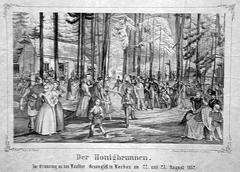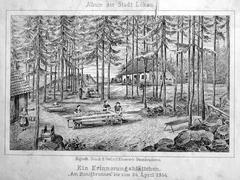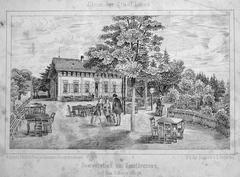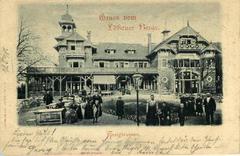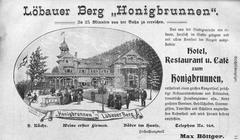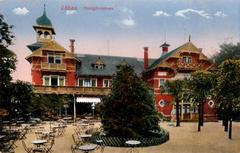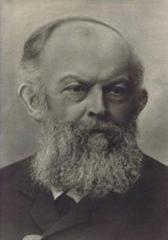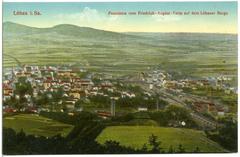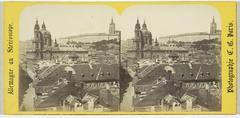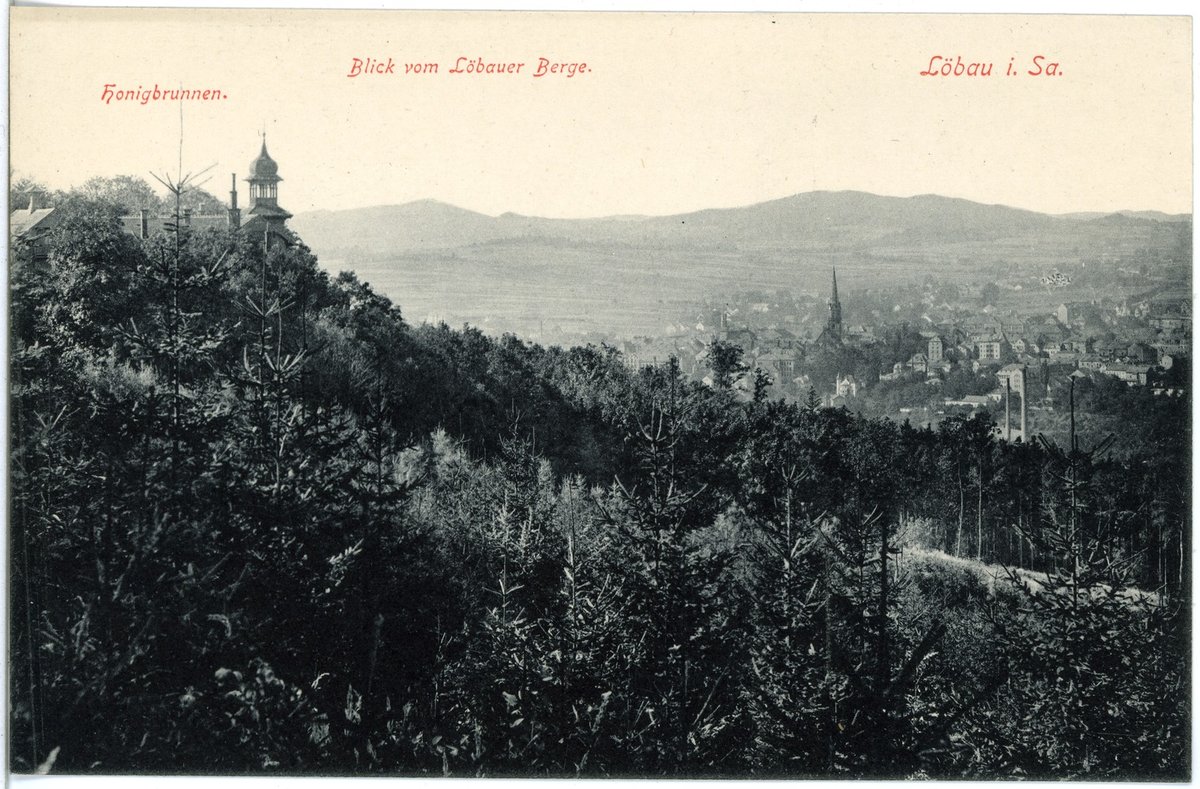
Honey Fountain Visiting Hours, Tickets, and Guide to the Löbau Historical Site
Date: 14/06/2025
Introduction: The Honey Fountain’s Legacy in Löbau
Nestled on the scenic slopes of Löbauer Berg in Saxony, Germany, the Honey Fountain (Honigbrunnen) is more than just a picturesque landmark—it is a vibrant emblem of Löbau’s rich history, cultural traditions, and natural beauty. The site’s story weaves together the town’s medieval origins, its beekeeping heritage, and the spa culture that flourished here in the 19th century. Today, the Honey Fountain stands as a symbol of abundance and sweetness, inviting visitors to discover the unique blend of history, architecture, and leisure that defines Saxon hospitality (Sachsen-Lausitz, loebau.de).
Contents
- Introduction
- Löbau’s Historical Context & Urban Development
- The Honey Fountain: History, Architecture & Symbolism
- Visiting the Honigbrunnen: Hours, Tickets & Travel Tips
- Accessibility & Facilities
- Activities & Nearby Attractions
- Frequently Asked Questions (FAQ)
- Contact & Further Information
- Conclusion & Final Recommendations
- References
Löbau’s Historical Context & Urban Development
Medieval Origins and Growth
Löbau, situated in Upper Lusatia, traces its roots to the early Middle Ages. Its name, meaning “city by the mountain,” reflects its location at the base of Löbauer Berg, an extinct volcano. Archaeological evidence suggests settlement here since the Bronze Age, with fortifications atop the summit still partially visible (Sachsen-Lausitz). By the 14th century, Löbau was a thriving trade center, its prosperity marked by the construction of the Gothic-style free-standing town hall—a rarity in Saxony (loebau.de).
Fires, Reconstruction & Urban Heritage
Despite devastating fires in 1570 and 1710, Löbau’s resilience led to the restoration of its town hall, blending Gothic and Baroque styles (city-map.com). Other notable sites include the Bretschneider House and King Albert’s Bath—reminders of the town’s spa heritage. The railway station, linking Dresden and Görlitz, underscores Löbau’s historic role as a regional transportation hub.
Economic & Cultural Evolution
Löbau’s history is marked by shifts in governance and industry, including periods under the Duchy of Warsaw, Prussia, and the DDR. Today, the old town bustles with shops, restaurants, and cultural sites, reflecting a vibrant community spirit.
The Honey Fountain: History, Architecture & Symbolism
Origins & Cultural Role
The Honigbrunnen, or “Honey Fountain,” is not a traditional fountain but a mountain inn and gathering place that pays homage to the region’s beekeeping and honey traditions (Sachsen-Lausitz). For over a century, it has served as a social hub, welcoming locals and travelers alike with hospitality and panoramic views.
Architectural Features
The Berghotel Honigbrunnen exemplifies late 19th-century Saxon spa architecture: rustic timber framing, gabled roofs, and decorative woodwork merge with modern amenities (Sachsen-Lausitz). Artistic motifs—bees, honeycombs, and floral patterns—adorn the structure, reflecting Löbau’s agricultural heritage.
Symbolism
Honey has long symbolized abundance and fertility in European folklore (MielDor), while fountains represent life and renewal (Eden Bengals). The Honigbrunnen unites these themes, emphasizing Löbau’s spirit of community and well-being.
Visiting the Honigbrunnen: Hours, Tickets & Travel Tips
Visiting Hours & Entry
- Honigbrunnen Restaurant & Hotel: Open daily, typically from 11:00 AM to 10:00 PM (seasonal adjustments possible; confirm in advance).
- Terrace & Outdoor Areas: Accessible year-round, generally from 8:00 AM to sunset.
- Entry Fee: Free for the site and parkland; charges apply only for dining, hotel stays, or special events.
Tickets & Tours
- Guided Tours: Available via the Löbau Tourist Information Center; advance booking recommended (loebau.de).
- Special Events: The Honey Fountain hosts weddings, banquets, and local festivals—book ahead for these occasions.
Travel Tips
- Best Time to Visit: Spring to autumn for blooming gardens and comfortable weather.
- Reservations: Recommended for dining and accommodation, especially on weekends and during festivals.
- Language: German is primary; English widely understood at tourist venues.
Accessibility & Facilities
Getting There
- Address: Berg-Gasthof Honigbrunnen, Löbauer Berg 4, 02708 Löbau
- By Train: Löbau is connected to Dresden, Görlitz, and Zittau; from the station, it’s a 30–40 minute walk or a short taxi/bus ride (Official Löbau Tourist Info).
- By Car: Access via B6/B178; parking available near the site (Ostsachsen regional guide).
- On Foot/Bike: Well-marked trails lead from Löbau’s center up Löbauer Berg.
Accessibility Features
- Designated accessible parking;
- Paved, wheelchair-friendly paths from parking to the restaurant;
- Ramps and accessible restrooms;
- Family amenities: playground, baby changing, high chairs.
Facilities
- Restaurant & Café: Traditional Saxon cuisine, honey-based specialties, panoramic terrace.
- Hotel: Comfortable rooms with scenic views.
- Restrooms: Modern and accessible.
- Bike Racks: Available for cyclists.
Activities & Nearby Attractions
- King-Friedrich-August-Tower: Historic cast-iron observation tower with sweeping views (Komoot guide).
- Haus Schminke: Bauhaus-era architectural gem with guided tours (Haus Schminke Official).
- Stadtmuseum Löbau: Local history, industry, and culture.
- Löbau Town Hall & Nicolaikirche: Explore the Gothic town hall and neo-Gothic church in the Altstadt.
- Georgewitzer Skala: Scenic gorge and hiking destination.
- Messepark Löbau: Venue for festivals, concerts, and craft fairs (Messepark Löbau Events).
- Day Trips: Bautzen, Görlitz, Saxon Switzerland National Park.
Frequently Asked Questions (FAQ)
Q: What are the Honey Fountain’s visiting hours?
A: Outdoor areas are open 8:00 AM to sunset; restaurant/hotel usually 11:00 AM to 10:00 PM.
Q: Is there an entry fee?
A: No, access to the Honey Fountain site and outdoor areas is free; fees apply for dining, accommodation, or special events.
Q: Are guided tours available?
A: Yes, via the Löbau Tourist Information Center; booking recommended.
Q: Is the site accessible for wheelchairs and families?
A: Yes. Accessible parking, paved paths, ramps, and family facilities are available.
Q: Are pets allowed?
A: Dogs are welcome outdoors on a leash.
Q: What’s the best season to visit?
A: Spring to autumn for gardens, weather, and events.
Contact & Further Information
- Tourist Information Löbau
- Phone: +49 3585 450 140
- Email: [email protected]
- Official Website
- Honigbrunnen Restaurant & Hotel
- Official Website
- Phone: +49 3585 450 140
Conclusion & Final Recommendations
The Honey Fountain in Löbau is a testament to Saxony’s rich heritage, offering visitors a harmonious blend of history, architecture, natural beauty, and hospitality. With free access to scenic outdoor spaces, family-friendly amenities, and vibrant nearby attractions, the site caters to every traveler’s interests. For a memorable experience, plan your visit by checking current opening hours, booking tours or accommodations in advance, and exploring Löbau’s other cultural gems. Enhance your trip with the Audiala app for guided audio tours and stay connected with local updates through official channels.
For more travel inspiration, explore our related articles on Löbau historical sites and Saxony travel guides, and follow Löbau Tourism on social media.
References
- Visiting the Honigbrunnen in Löbau: History, Tickets, and Travel Tips for Saxony’s Honey Fountain (Sachsen-Lausitz)
- Historical Buildings in Löbau (loebau.de)
- The Cultural Significance of Honey: A Global Perspective (MielDor)
- Visiting the Honey Fountain in Löbau: History, Tickets, Hours, and Travel Tips (loebau.de)
- Practical Visitor Information and Accessibility (Ostsachsen Regional Guide)
- Visiting the Honey Fountain in Löbau: Hours, Tickets, Accessibility, and Nearby Attractions (Official Löbau Tourist Info)

